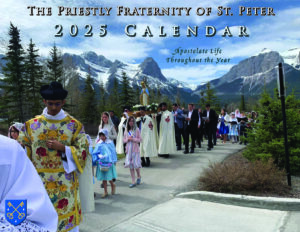Shaken Reeds
There is a short political ad from the Biden campaign (usually imposed before a YouTube video) where presidential candidate Joseph Biden talks about the place of his Catholic faith in his life. Research into the origin of the ad revealed that all the voiceover we hear of Mr. Biden is taken from his 2015 video interview with Fr. Matt Malone, SJ, of America Magazine, the media arm of the Jesuits.
 While the interview is cordial and non-confrontational, it reveals a great deal about how he understands Roman Catholicism. Keeping in mind our Lord’s warning about building houses upon sand, Mr. Biden seems to organize his faith – and its expression – around the theme that “everyone should be treated with dignity,” which he says is at the heart of Catholic social doctrine. Along with that, we have “the obligation to fight against the abuse of power” in all its forms, which he considers the cardinal sin of humanity, an impression made upon him by his late father, whom we pray may rest in peace.
While the interview is cordial and non-confrontational, it reveals a great deal about how he understands Roman Catholicism. Keeping in mind our Lord’s warning about building houses upon sand, Mr. Biden seems to organize his faith – and its expression – around the theme that “everyone should be treated with dignity,” which he says is at the heart of Catholic social doctrine. Along with that, we have “the obligation to fight against the abuse of power” in all its forms, which he considers the cardinal sin of humanity, an impression made upon him by his late father, whom we pray may rest in peace.
Now at face value, we will not find many people who would disagree with this; we all want everyone to be treated with dignity and respect as fellow human beings. But these platitudes have little depth.
If we dig a little bit below the surface, a question that arises is just how does Mr. Biden understand the mission of the Church? Why does the Catholic Church exist at all?
Since he goes on to say that “all confessional faiths” share in this goal (do they really?), where does he place Catholicism in the mix? Is it just one among many “equal” faiths, one among many “equal” paths to God?
Furthermore, when it comes to the person of Jesus Christ, citing encounters our Lord had with figures like Mary Magdalene and lepers, Mr. Biden explains that our Lord is “the embodiment of what God wants us to do. All Christ did is consistent generically with what we are supposed to do – treat everyone with dignity.”
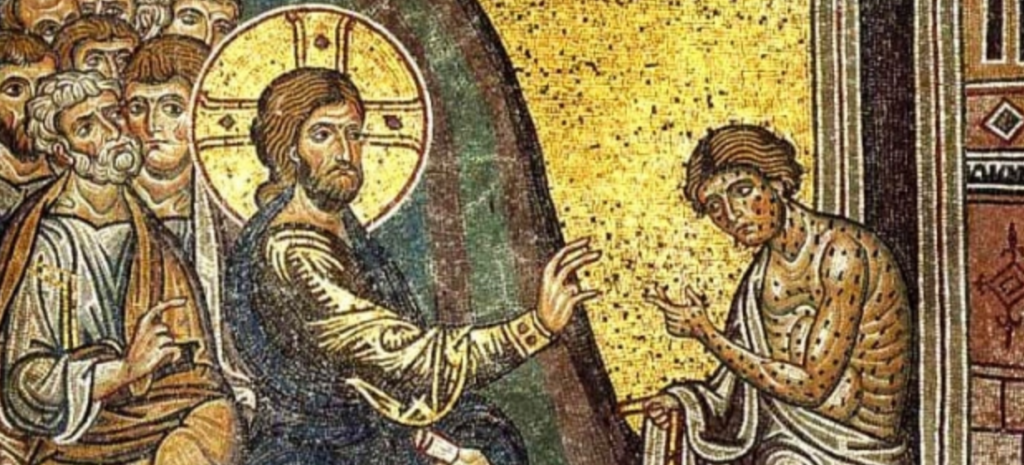
Now while Christ did say Learn from Me, for I am meek and humble of heart, and while He did also say Love your neighbor as yourself, this vague idea of our Lord prompts an even more important and critical question: is Jesus Christ true God or not?
All these questions are quite legitimate because Mr. Biden, a declared practicing Catholic, is a public servant running for the highest office in the United States. Keep in mind that morals follow from doctrine: what a person believes determines how he acts. So while accounting for human weakness, the more firmly a man holds to a set of doctrine, the more he will strive to act consistently with it.
The contrary is equally true; the more a man deliberately acts contrary to his beliefs, the more those beliefs are eroded, changed, and ultimately abandoned. This readily applies to anyone: no one is without religion; everyone follows a creed, and everyone acts based upon it (even an atheist).
Therefore, it is most normal to want to know how seriously Mr. Biden believes, because it is legitimately expected that the Catholic Faith inform how Mr. Biden intends to govern if he were elected to the presidency.
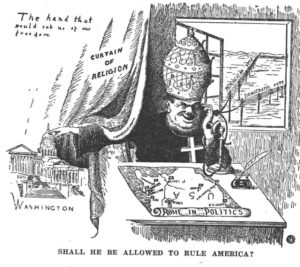 Indeed there has been a long historical prejudice in this country over Catholic citizens holding high public office because of a Catholic’s allegiance to a “foreign power” known as the Pope and Magisterium.
Indeed there has been a long historical prejudice in this country over Catholic citizens holding high public office because of a Catholic’s allegiance to a “foreign power” known as the Pope and Magisterium.
But the Papacy is not a temporal authority in its essence; it is a spiritual and moral authority which originates in Jesus Christ, true God and true Man, with the express purpose and mission of guiding all souls towards repentance from sin and eternal life based upon the revelation of Christ.
Therefore, the Church is there to guide the administration and exercise of temporal power, to call out its abuse, but never to usurp it. While mindful of our Lord’s words to render to Caesar what is his, and to God what is God’s, the Church insists that, if there is a conflict between the two, the problem must be on the side of Caesar.
The Church’s very existence indicates that there is a hierarchy of power within the cosmos, and so the Church rightfully expects her children (that is, the baptized) to respect this reality, imposing a grave moral obligation to act accordingly in genuine observance of the order of the Great Commandment, and this most especially in the case where a person has been given care of the common good. You are the light of the world Christ told His Apostles (Mt. 5:14). We must be witnesses of the Light (cf. Jn. 12:36) for no one lights a candle (that is, receives Baptism) and then hides it under a bushel basket; rather it is placed on a lampstand in order to give light to the whole house. (Mt. 5:15) And recall further the sorry fate of the man who received a talent and buried it (cf. Mt. 25:24).
This naturally unsettles public servants who have more concern for the things of Caesar than for God’s.
The presence of a serious Catholic in their midst who has the supernatural courage to act based upon the Church’s teachings is both a threat and indictment.
This does not mean that a Catholic president, or legislator, or judge should suddenly proclaim Catholicism to be the national religion of our country. In a system such as ours, that could be considered an abuse of power since it runs contrary to the Constitution, something the Church tolerates. No, the arrangement is not ideal, but under this government the Church at least can exist and have some influence, although we see this threatened for various reasons nowadays.
But what it does mean is that a Catholic president has the moral obligation to attempt to rid our land of immoral and evil laws and organizations on account of his profession of Faith, while also promoting the influence of the Church and her welfare. If a Catholic candidate is on record in support of evil laws and organizations, either personally or by affiliation with a political party whose official platform supports these, he has a moral obligation to recant, abandon the party if he cannot immediately change it, and do whatever is within his power to correct any damage he has caused.
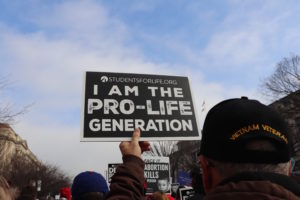 This begins with the most fundamental of rights, the right to life, and that right being safeguarded in all times and circumstances to the weakest and most vulnerable – the unborn. To say that there are more pressing moral and social issues that plague our country is to completely miss the point; poisoning the river at its source poisons the lake into which it flows.
This begins with the most fundamental of rights, the right to life, and that right being safeguarded in all times and circumstances to the weakest and most vulnerable – the unborn. To say that there are more pressing moral and social issues that plague our country is to completely miss the point; poisoning the river at its source poisons the lake into which it flows.
There is a hierarchy of moral issues, and so a grave error on the fundamental right to life poisons how all life is regarded and demands correction, especially from a Catholic who has been given the power or influence from God, the source of all authority, to attempt to do so. What about “treating everyone with dignity” and “fighting abuse of power?”
We recall California Senator Dianne Feinstein’s remark a few years ago to Judge Amy Coney Barrett, Catholic mother of seven, that “the dogma [Catholicism] lives loudly within you.” Sen. Feinstein prefaced her remark by saying “dogma and law are two different things” and dogma “is a concern when you come to big issues that large numbers of people have fought for for years.”
Evidently this is a reference to abortion.
On this precise subject, Mr. Biden stated in his interview, and has not since recanted, that while “he is prepared to accept de fide doctrine [that is, he is personally opposed to abortion], he is not prepared to impose a ‘rigid’ – not ‘rigid’ because that sounds pejorative – rather a ‘precise’ view born of his faith upon others.”
However, this is not as if Mr. Biden would impose on everyone belief in the Holy Trinity. Raymond Cardinal Burke in an interview on EWTN states that “abortion is not a confessional belief but has to do with the natural law.”
Let us remember that nature and revelation have the same source – God – and so the two can never be opposed; Sen. Feinstein is incorrect then, because law is related to dogma, as law is an expression of it.
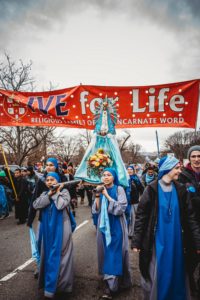
Self-evident truths such as life and liberty are a type of dogma; laws flow from that. Faith in the Incarnation should make those even more self-evident. In virtue of having the gift of the Catholic Faith through Baptism, Mr. Biden should have a firmer conviction and certainty of the natural law right every human being has to life. His private “belief” in this matter cannot be divorced from his public policy; he cannot observe a public stance that is either directly contrary or indifferent to it without committing grave sin and causing scandal.
He publicly claims that abortion is the law of the land and that he will do all he can to make sure it stays that way; therefore, any Catholic who supports him, or aligns oneself with a political party that supports him, would be in proximate cooperation with evil and would commit a grave sin, regardless if someone says he or she is “personally opposed to it” also.
The stance on life is not a disagreement in perspective or approach between political parties.
It is a moral absolute that admits no compromise, and is the issue that must rise to the top on election day. Abortion, which is the ugly daughter of a contraceptive and divorce-happy culture, must be eradicated, along with its own ugly daughters of pornography, prostitution, sex trafficking, and child exploitation.
So while Mr. Biden’s interview reveals a somewhat poor catechesis about what the Church is, we cannot help but wonder if his radical disregard, after so many years, of the Church’s (and the natural law’s) moral teaching on life has adversely affected and eroded how he should believe.
Where is his moral compass then? Can he even have one? Is Jesus Christ True God and True Man, who died on a Cross and rose from the dead, to Joseph Biden?
Or is Jesus Christ just some philanthropist who came to teach us how to be “nice” to each other without pricking the conscience about the silent screams in the background?

Is Mr. Biden more a reed shaken in the wind of public opinion, a product of political ambition, in stark contrast to the fortuitous and convicted John the Baptist whom Herod had to put to death when his warnings became inconvenient?
Pray that Mr. Biden comes to see and amend the profound error of his ways lest, like Herod, he renders himself incapable of being someone Christ can talk to.
October 16, 2020








